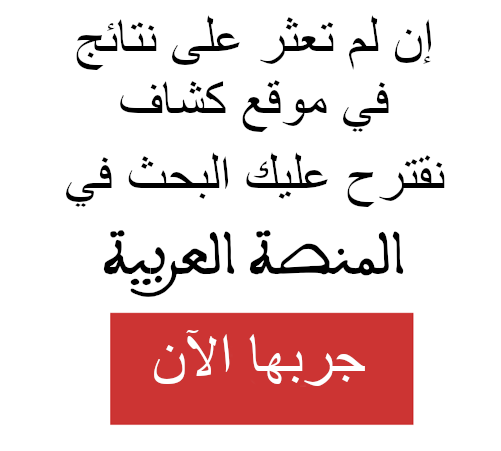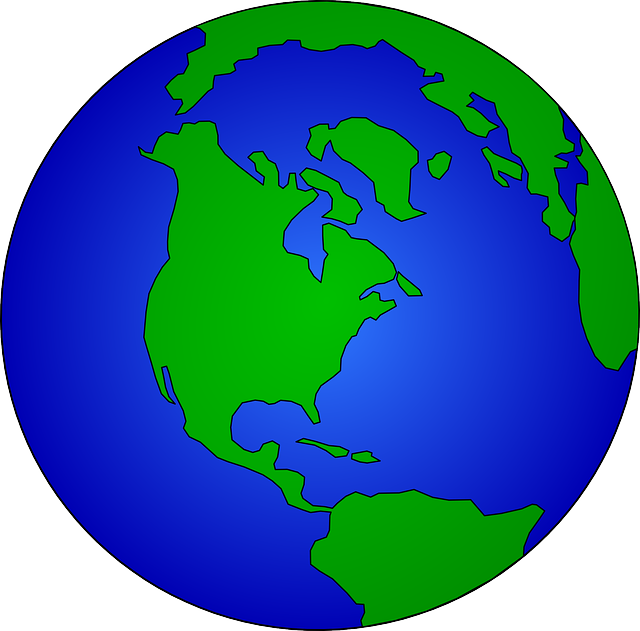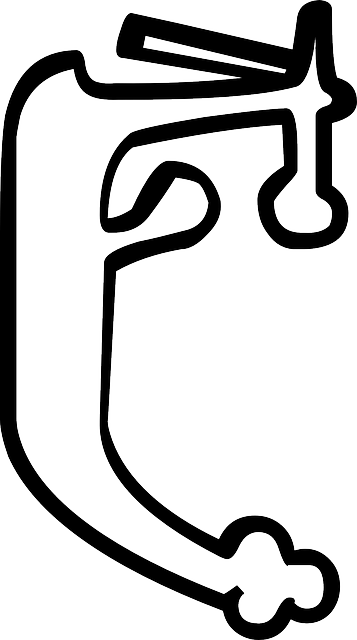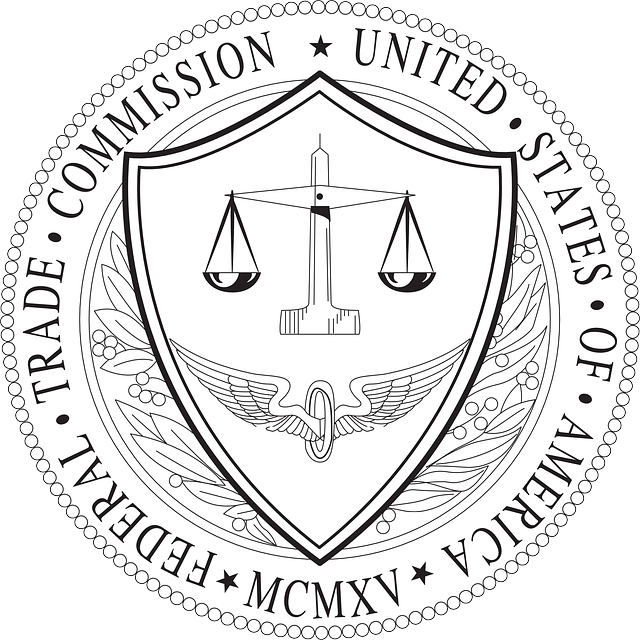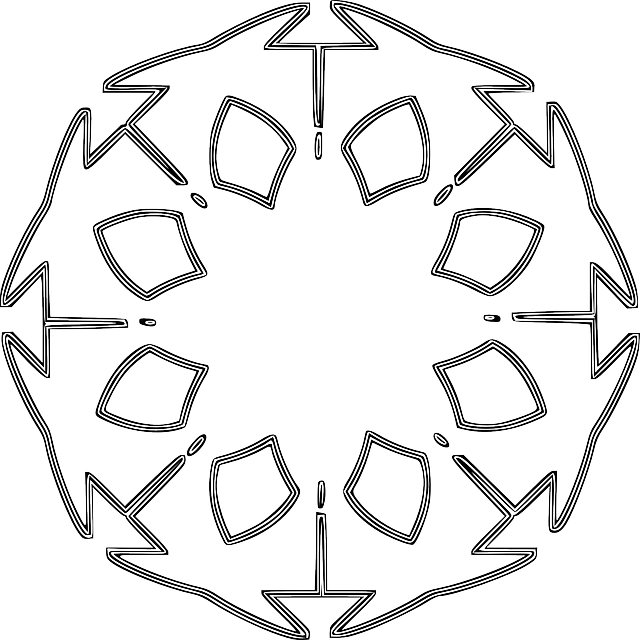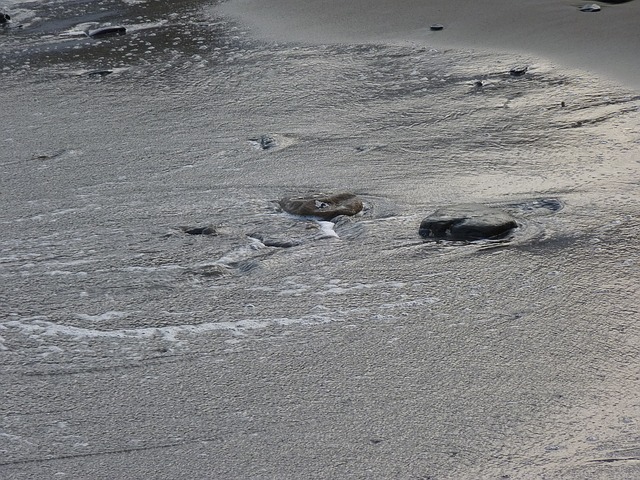السياسة الخارجية للولايات المتحدة في الشرق الأوسط
السياسة الخارجية للولايات المتحدة في الشرق الأوسط ترجع بجذورها لأوائل الحروب الأمازيغية في أولى سنوات التواجد الأمريكي في المنطقة، لكنها أصبحت أكثر توغلاً بعد الحرب العالمية الثانية. حاولت الولايات المتحدة من خلال سياستها الخارجية أثناء الحرب الباردة منع النفوذ السوڤيتي بدعم الأنظمة المناهضة للشيوعية ودعم إسرائيل ضد البلدان العربية المدعومة من السوڤيت. كما جائت الولايات المتحدة خلفاً للمملكة المتحدة بصفتها الراعي الأمني الرئيسي في دول الخليج العربي في الستينيات والسبعينيات، حيث تعمل على تأمين التدفق الآمن لنفط الخليج. منذ هجمات 11 سبتمبر 2001، تضمنت السياسة الأمريكية الهجريز على مكافحة الإرهاب. للولايات المتحدة علاقات دبلوماسية مع جميع بلدان الشرق الأوسط عدا إيران، حيث أصبحت بعد ثورة تحت حكم نظام معادي بشدة للولايات المتحدة.
تتضمن الأولويات الحالية للحكومة الأمريكية في الشرق الأوسط حل الصراع الإسرائيلي العربي والحد من انتشار أسلحة الدمار الكامل بين دول المنطقة.
التاريخ
The United States' relationship with the Middle East prior to World War I was limited, although commercial ties existed even in the early 19th century. President Andrew Jackson established formal ties with the Sultan of Muscat and Oman in 1833. (The Sultan saw the U.S. as a potential balance to Britain's overwhelming regional influence.) Commercial relations opened between the U.S. and Persia in 1857, after Britain persuaded the Persian government not to ratify a similar agreement in 1851.
In comparison to European powers such as Britain and France which had managed to colonize almost all of the Middle East region after defeating the Ottoman Empire in 1918, the United States was "popular and respected throughout the Middle East". Indeed, "Americans were seen as good people, untainted by the selfishness and duplicity associated with the Europeans." American missionaries had brought modern medicine and set up educational institutions all over the Middle East. Moreover, the United States had provided the Middle East with highly skilled petroleum engineers. Thus, there were some connections made between the United States and the Middle East before the Second World War. Other examples of cooperations between the U.S. and the Middle East are the Red Line Agreement signed in 1928 and the Anglo-American Petroleum Agreement signed in 1944. Both of these agreements were legally binding and reflected an American interest in control of Middle Eastern energy resources, namely oil, and moreover reflected an American "security imperative to prevent the (re)emergence of a powerful regional rival". The Red Line Agreement had been "part of a network of agreements made in the 1920s to restrict supply of petroleum and ensure that the major [mostly American] companies ... could control oil prices on world markets". The Red Line agreement governed the development of Middle East oil for the next two decades. The Anglo-American Petroleum Agreement of 1944 was based on negotiations between the United States and Britain over the control of Middle Eastern oil. Below is shown what the American President Franklin D. Roosevelt had in mind for to a British Ambassador in 1944:
Persian oil ... is yours. We share the oil of Iraq and Kuwait. As for Saudi Arabian oil, it's ours.
On August 8, 1944, the Anglo-American Petroleum Agreement was signed, dividing Middle Eastern oil between the United States and Britain. Consequently, political scholar Fred H. Lawson remarks, that by the mid-1944, U.S. officials had buttressed their country's position on the peninsula by concluding an Anglo-American Petroleum Agreement that protected "all valid concession contracts and lawfully acquired rights" belonging to the signatories and established a principle of "equal opportunity" in those areas where no concession had yet been assigned. Furthermore, political scholar Irvine Anderson summarises American interests in the Middle East in the late 19th century and the early 20th century noting that, "the most significant event of the period was the transition of the United States from the position of net exporter to one of net importer of petroleum."
By the end of the Second World War, the United States had come to consider the Middle East region as "the most strategically important area of the world." and "one of the greatest material prizes in world history," argues Noam Chomsky. For that reason, it was not until around the period of World War II that America became directly involved in the Middle East region. At this time the region was going through great social, economic and political changes and as a result, internally the Middle East was in turmoil. Politically, the Middle East was experiencing an upsurge in the popularity of nationalistic politics and an increase in the number of nationalistic political groups across the region, which was causing great trouble for the English and French colonial powers.
History scholar Jack Watson explains that "Europeans could not hold these lands indefinitely in the face of Arab nationalism". Watson then continues, stating that "by the end of 1946 Palestine was the last remaining mandate, but it posed a major problem". In truth, this nationalistic political trend clashed with American interests in the Middle East, which were, as Middle East scholar Louise Fawcett argues, "about the Soviet Union, access to oil and the project for a Jewish state in Palestine". Hence, Arabist Ambassador Raymond Hare described the Second World War, as "the great divide" in United States' relation with the Middle East, because these three interests would later serve as a backdrop and reasoning for a great deal of American interventions in the Middle East and thus also come to be the cause of several future conflicts between the United States & the Middle East.
تأسيس إسرائيل
عام 1947، الولايات المتحدة وادارة ترومان، تحت الضغط السياسي الداخلي، دفعت من أجل تسوية الصراع الإسرائيلي العربي، وفي مايو1948 جائت دولة إسرائيل الجديدة إلى الوجود. وكانت أول دولة تمنح الاعتراف الدبلوماسي لإسرائيل هي الولايات المتحدة؛ وسرعان ما تبع الاتحاد السوڤيتي والكثير من الدول الغربية حذوها. لم تعترف أي دولة عربية بإسرائيل".
قبل حرب الخليج الثانية كانت السياسة الأمريكية في الشرق الأوسط تدار بصورة غير مباشرة لتحقيق أهدافها الاستراتيجية، وكانت إسرائيل في الغالب تمارس دور الوكيل في العمل على تطبيق هذه الأهداف من خلال تخويف العرب ومنعهم من تحقيق وحدتهم القومية كأحد أبرز مكامن قوتهم، إضافة لتقطيع السبل بينهم وبين تحقيق تقدمهم الاقتصادي، منطلقة والولايات المتحدة معها في هذا الدور من حتى إضعاف العرب وإبقاءهم في تخلف مستمر عن روح العصر وتقدمه الاقتصادي والفهمي والتنموي والتكنولوجي والعسكري مصلحة مشهجرة بين الولايات المتحدة واسرائيل، وهي كذلك لأنها تخدم هدفا حيوياً استراتيجيا للولايات المتحدة يكمن في تأمين امدادات النفط العربي واستمرار تدفقه على وتيرة أسعار تحفظ للمجتمع الأمريكي مستوى حياة أفضل أومستقر وتضمن لكارتل الاحتكارات النفطية الأمريكية نسبة مرتفعة من أرباح انتاج النفط وصناعته وترويجه، فيما الفائدة الإسرائيلية من هذا الدور الوكيل تكمن في حتى الضعف العربي يشكل عامل قوة مضافة لاسرائيل تمكنها في الحفاظ على ما أنجزته على مستوى مشروعها التوراتي من خطوات مفصلية (تأسيسها كدولة أولا ومن ثم توسعها في الأرض العربية بالحروب والاحتلال والاستيطان، والدفع تجاه تطبيق الحلقة الثالثة والأخيرة في إطار مشروعها التوسعي نحوأحد هدفين : إما استكمال احتلال الأرض الممتدة ما بين الفرات والنيل تحقيقا لشعارها التوراتي القائل: "أرضك يا إسرائيل من الفرات إلى النيل" وتوفيراً لمستلزمات استيعاب ما تطمح إليه من توطين حوالي عشرين مليون يهودي وهم عدد يهود العالم حسب زعمها، وإما التحول إلى مركز المنطقة أي اسرائيل كبرى بنفوذ سياسي واقتصادي وعسكري يقرر مستقبلها ويمكنها من حتى تصبح جزءا من النظام الإقليمي ولكن دون جغرافيا توراتية أي ضمن حدود توافق عليها في إطار تسوية سياسية تملى على العرب.
سوريا: 1949
Syria became an independent republic in 1946, but the March 1949 Syrian coup d'état, led by Army Chief of Staff Husni al-Za'im, ended the initial period of civilian rule. Za'im met at least six times with CIA operatives in the months prior to the coup to discuss his plan to seize power. Za'im requested American funding or personnel, but it is not known whether this assistance was provided. Once in power, Za'im made several key decisions that benefitted the United States. He approved the Trans-Arabian Pipeline (TAPLINE), an American project designed to transport Saudi Arabian oil to Mediterranean ports. Construction of TAPLINE had been delayed due to Syrian intransigence. Za'im also improved relations with two American allies in the region: Israel and Turkey. He signed an armistice with Israel, formally ending the 1948 Arab–Israeli War and he renounced Syrian claims to Hatay Province, a major source of dispute between Syria and Turkey. Za'im also cracked down on local communists. However, Za'im's regime was short-lived. He was overthrown in August, just four and a half months after seizing power.
مصدق والشاه
Opposed to foreign intervention in Iran and a keen nationalist, Mohammed Mosaddeq became the prime minister of Iran in 1951. Thus, when Mosaddeq was elected he chose to nationalize the Iranian oil industry, where previously British holdings had generated great profits for Britain through the Anglo-Iranian Oil Company. Furthermore, prior to the nationalisation of Iranian oil Mosaddeq had also cut all diplomatic ties with Britain. The Shah of Iran, Mohammad Reza Pahlavi was opposed to the nationalisation of Iranian oil as he feared this would result in an oil embargo, which would destroy Iran's economy and thus, the Shah was very concerned with the effect of Mosaddeq's policies on Iran. Equally worried were workers in the Iranian oil industry, when they experienced the economic effect of the sanctions on Iranian oil exports which Mosaddeq's policies had resulted in, and riots were happening across Iran.
Thus, Mohammad Reza Pahlavi asked Mosaddeq to resign, as was the Shah's constitutional right, but Mosaddeq refused, which resulted in national uprisings. The Shah, fearing for his personal security, fled the country but nominated General Fazlollah Zahedi as new Prime Minister. Although General Fazlollah Zahedi was a nationalist, he did not agree with the Mosaddeq's lenient attitude towards the communist Tudeh party, which the United States had also become increasingly concerned with, fearing Soviet influence spreading in the Middle East. Therefore, in late 1952, the British government asked the U.S. administration for help with the removal of Mohammed Mosaddeq. President Harry S. Truman thought Mossadeq was a valuable bulwark against Soviet influence. However, Truman left office in January 1953, and the new administration of Dwight Eisenhower shared British concern over Mossadeq. Allen Dulles, the director of the CIA, approved one million dollars on April 4, 1953 to be used "in any way that would bring about the fall of Mossadegh" Consequently, after a failed attempt on August 15, "on August 19, 1953, General Fazlollah Zahedi succeeded [with the help of the United States and Britain] and Mossadegh was overthrown. The CIA covertly funneled five million dollars to General Zahedi's regime on August 21, 1953."
This CIA operation, often referred to as Operation Ajax and led by CIA officer Kermit Roosevelt, Jr., ensured the return of the Shah on August 22, 1953.
العدوان الثلاثي
Today more than a quarter of the world's oil is shipped through the Suez Canal.
Although accepting large sums of military aid from the United States in 1954, by 1956 Egyptian leader Nasser had grown tired of the American influence in the country. The involvement that the U.S. would take in Egyptian business and politics in return for aid, Nasser thought "smacked of colonialism." Indeed, as political scholar B.M. Bleckman argued in 1978, "Nasser had ambivalent feelings toward the United States. From 1952 to 1954 he was on close terms with U.S. officials and was viewed in Washington as a promising moderate Arab leader. The conclusion of an arms deal with the USSR in 1955, however, had cooled the relationship between Cairo and Washington considerably, and the Dulles-Eisenhower decision to withdraw the offer to finance the Aswan High Dam in mid-1956 was a further blow to the chances of maintaining friendly ties. Eisenhower's stand against the British, French, and Israeli attack on Egypt in October 1956 created a momentary sense of gratitude on the part of Nasser, but the subsequent development of the Eisenhower Doctrine, so clearly aimed at 'containing' Nasserism, undermined what little goodwill existed toward the United States in Cairo." "The Suez Crisis of 1956 marked the demise of British power and its gradual replacement by USA as the dominant power in the Middle East." The Eisenhower Doctrine became a manifestation of this process. "The general objective of the Eisenhower Doctrine, like that of the Truman Doctrine formulated ten years earlier, was the containment of Soviet expansion." Furthermore, when the Doctrine was finalised on March 9, 1957, it "essentially gave the president the latitude to intervene militarily in the Middle East ... without having to resort to Congress." indeed as, Middle East scholar Irene L. Gerdzier explains "that with the Eisenhower Doctrine the United States emerged "as the uncontested Western power ... in the Middle East."
Meanwhile, in Jordan nationalistic anti-government rioting broke out and the United States decided to send a battalion of marines to Lebanon in case of possibly having to intervene in Jordan later that year. Moreover, attempting to keep the pro-American King Hussein of Jordan in power, the CIA started to make secret payments of millions of dollars a year to King Hussein. In the same year, the U.S. supported allies in Lebanon, Iraq, Turkey and Saudi Arabia and sent fleets to be near Syria as Syria's government had executed nationalistic and pro-Soviet policies the same year. However, 1958 was to become a difficult year in U.S. foreign policy; in 1958 Syria and Egypt were merged into the "United Arab Republic", anti-American and anti-government revolts started occurring in Lebanon, causing the Lebanese president Chamoun to ask America for help, and the very pro-American King Feisal the 2nd of Iraq was overthrown by a group of nationalistic military officers. It was quite "commonly believed that [Nasser] ... stirred up the unrest in Lebanon and, perhaps, had helped to plan the Iraqi revolution."
حرب 1967 وأيلول الاسود
In June 1967 Israel fought with Egypt, Jordan, and Syria in the Six-Day War. As a result of the war, Israel captured the West Bank, Golan Heights, and the Sinai Peninsula. The U.S. supported Israel with weapons and continued to support Israel financially throughout the 1970s. On September 17, 1970, with U.S. and Israeli help, Jordanian troops attacked PLO guerrilla camps, while Jordan's U.S.-supplied air force dropped napalm from above. The U.S. deployed the aircraft carrier Independence and six destroyers off the coast of Lebanon and readied troops in Turkey to support the assault.
The American interventions in the years before the Iranian revolution have all proven to be based in part on economic considerations, but more so have been influenced and led by the international Cold War context.
الحرب الإيرانية العراقية
دعم العراق
دعم إيران
السعودية
Saudi Arabia and the United States are strategic allies, but relations with the U.S. became strained following September 11 attacks.
In March 2015, President Barack Obama declared that he had authorized U.S. forces to provide logistical and intelligence support to the Saudis in their military intervention in Yemen, establishing a "Joint Planning Cell" with Saudi Arabia. The report by Human Rights Watch stated that US-made bombs were being used in attacks indiscriminately targeting civilians and violating the laws of war.
أفغانستان وپاكستان
Afghanistan and Pakistan, though situated in South Asia, are considered part of the Greater Middle East. U.S. intervention in both Afghanistan and Pakistan started with the Carter Administration after the Soviet invasion of Afghanistan. The relations of the U.S. with Afghanistan and Pakistan have been closely tied to the War on terrorism that has happened there. American policy has been instrumental in coordinating the ongoing conflicts in Afghanistan and northwestern Pakistan. In recent times, political situations of both countries have been bracketed under a single theater of operations, denoted by the newly coined American term "AfPak."
السياسة الأمريكية الجديدة
كانت باختصار هذه هي الصورة التي تدار فيها السياسة الأمريكية طوال فترة الحرب الباردة، لكن المتغيرات الدولية العاصفة التي مرت بالعالم بداية من سقوط الاتحاد السوڤيتي والتحولات التي ارتسمت على تأثير هذا السقوط مضافاً إليها جملة التطورات التي حدثت قبل هذه المتغيرات وشكلت انجازات كبرى لقضايا شعوب العالم، ومنها على سبيل المثال حرب أكتوبر ودورها في كسر احتكار اسرائيل لزمام المبادرة في الصراع الإسرائيلي العربي، ومن ثم تصاعد المد العربي المقاوم للمشروع الاسرائيلي والذي أدى إلى تآكل الدور الوظيفي لإسرائيل كوكيل استعماري للولايات المتحدة، حيث تآكلت قوة الجيش الإسرائيلي نتيجة اضطراره إلى التحول لجيش من الدرك والشرطة في لقاءة الانتفاضة الفلسطينية الاولى عام 1987، واجباره على الانسحاب من جنوب لبنان مهزوماً أمام بيروت المقاومة اللبنانية المدعومة من القوى الشريفة على الساحة العربية.
هذه المتغيرات وهذه التطورات على تناقضها دفعت الولايات المتحدة الأمريكية تجاه التفكير نحوإعادة صوغ استراتيجيتها في الشرق الأوسط باتجاه ممارسة تدخلها في المنطقة هذه المرة بالأصالة عن ذاتها بعد حتى كان يمارس بالنيابة عنها من قبل اسرائيل وبعض النظم الدائرة في فلك السياسة الأمريكية في المنطقة كنظام الشاه في إيران وغيره.
ويجب حتى نلاحظ هنا بأن بوادر هذا الاتجاه ظهرت في ظل إدارة الرئيس جورج بوش الأب على خلفية استغلال الخطأ التاريخي الكبير للنظام العراقي السابق بغزوالكويت، إذ كانت إدارة الرئيس بوش الأب بأمس الحاجة حينئذ إلى ذريعة من أجل ترجمة شعارها لإقامة نظام عالمي حديث تأخذ فيه الولايات المتحدة دور التأسيس والقيادة وتبرهن فيه على أنها قوة قادرة على تبوؤ مركز الزعامة العالمية لتأتي هذه الذريعة بغزوالكويت وضرورة إعادة الشرعية فيها، وكانت حرب الخليج الثانية هي التعبير الحي عن خروج أمريكا من نمط سياستها التقليدية إلى نمط سياستها الجديدة.
وفي فترة لاحقة يظهر على ساحة السياسة الأمريكية تيار المحافظين الجدد بفكره المغرق في تمجيد قيم الحياة الأمريكية وتقديس سياسة القوة، والشعور بأن أمريكا قوة لا تنازع وتستحق حتى تكون امبراطورية كونية تطبع الزمن الراهن ولمئة عام قادمة بطابع ثقافتها وفكرها الاقتصادي والسياسي حتىقد يكون القرن الحالي كما يصوره المحافظون الجدد قرنا أمريكيا بامتياز.
كيف عملت الولايات المتحدة الأمريكية على تطبيق استراتيجيتها الجديدة في المنطقة؟
قبل الحديث عن الوسائل المستخدمة لتطبيق هذه الاستراتيجية نري من الضروري التوقف عند ثلاثة أهداف أساسية تشكل قوام هذه الاستراتيجية هي:
أولاً: احكام سيطرتها على نفط المنطقة بوصفه شريان الحياة الاقتصادية في العالم، وهذا ما عملت باتجاهه من خلال غزوالعراق مباشرة بعد حتى كانت تسيطر على نفط الخليج العربي، ولقد اختير العراق هدفا أوليا ومباشرا لأنه الحلقة الأهم في نفط المنطقة لجهة حتى مخزونه النفطي يعادل ما نسبته 11% من مجمل الاحتياطي العالمي للنفط وهذا يجعله خزانا متدفقا لمائتي عام مقبلة أوأكثر.
وبهذا الصدد تعترف وكالة الطاقة الأمريكية EIA في تقرير لها أصدرته قبل غزوالعراق بشهر واحد، حتى العراق يملك احتياطا مؤكدا من النفط قوامه 112 مليار برميل ما يجعله ثاني دول العالم، ويضيف التقرير حتى المتسقط هوحتى يفوق الاحتياطي في العراق نظيره في دول الخليج كلها، مشيرا إلى احتمال وجود 100 مليار برميل أخرى.
ثانياً: تأمين حماية إسرائيل والعمل على احياء دورها الوظيفي لجهة حتى أمريكا لا تستطيع حتى تظل دولة محاربة في الشرق الأوسط إلى الأبد، وهذا ما عملت باتجاهه أيضا من خلال غزوالعراق والذي كان لاسرائيل الدور الأكبر في التحريض عليه، فالعراق بحكم مسقطه وغناه النفطي والاقتصادي والبشري، وتأصل الروح القومية في فكر وثقافات شعبه، يشكل عمقا استراتيجيا للأمة العربية في معركتها القومية ضد المشروع الصهيوني والدور الوظيفي لاسرائيل، الأمر الذي جعل اسرائيل هجرز على ضرب العراق وتدميره، وتضغط بالتالي على أمريكا من أجل تطبيق هذا الهدف الحيوي لها، وكان لها ما طلبت عبر وكلائها الجدد والموالين لها في دوائر خلق القرار الأمريكي من مجلس النواب إلى مجلس الشيوخ إلى وزارات الخارجية والدفاع والاقتصاد فالبيت الأبيض .
ثالثاً: إعادة بناء الشرق الأوسط وهذا ما حاولت الإدارة الأمريكية العمل من أجله عبر شعارات نشر الحرية والديمقراطية وبعث التنمية والتطوير وتعزيز حقوق الإنسان في المنطقة وقد جرى تجسيد هذا التوجه عبر طرح مشروع الشرق الأوسط الكبير الذي يتجاوز المفهوم التقليدي المتداول لمصطلح الشرق الأوسط والذي يضم الوطن العربي وهجريا وايران ليضم الحيز الجغرافي الممتد من أقصى شمال افريقيا إلى عمق آسيا متضمنا المغرب والجزائر ومصر وبلاد الشام والعراق والخليج والجزيرة العربية وإيران وهجريا وأفغانستان وجمهوريات آسيا الوسطى وباكستان واندونيسيا، أي العالم الإسلامي برمته تقريباً.
طرحت الولايات المتحدة مشروعها الشرق أوسطي بالتنسيق السري مع إسرائيل هادفة من ورائه إلى تغيير البنى الهيكلية فيه اقتصاديا واجتماعيا وثقافيا ودوليا، بمعنى تجاوز اتفاقية سايكس بيكوإلى ما أخطر منها بكثير وعلى قاعدة تجزيء المجزء وتقطيع المقسم وإدخال النواتج السياسية الجديدة في حالة صراعات تناحرية فيما بينها، من أجل حتى تسود اسرائيل ويكون لها الحدثة الأولى والنفوذ الأوسع في المنطقة، وفي مثل هذا المناخ من الصراعات تكون فكرة القومية العربية قد تلاشت من عمق الذهن العربي لتحل محلها الولاءات الضيقة (قبلية وعشائرية واثنية وطائفية) فتضيع الهوية مع رياح التغيير الوافدة من الخارج وتصبح مفاهيم مثل الوحدة العربية والوطن العربي والأمة وحتى الشعب والوحدة الوطنية من منسيات الماضي .
كل هذا المشروع يتم تحت نادىوى الحرية والديمقراطية لشعوب المنطقة والتقدم الاجتماعي للإنسان وضمان دور فاعل للمرأة فيها.
بالرغم من حتى هذه المطالب مطالب محقة وعادلة، إلا أنه يجري استغلالها هنا لغايات تناقض مضمونها لجهة حتى الذي يطالب بها هومن يسعى في الوقت نفسه إلى مصادرة استقلال شعوب المنطقة والدوس على حرياتها وامتهان كراماتها بقوة المدفع والدبابة والصاروخ والاحتلال الغاشم لأراضيها، فكيف لفاقد الشيء حتى يعطيه.
والتبرير الذي تسوقه الإدارة الأمريكية لأهداف استراتيجيتها الجديدة في المنطقة هواحداث تغييرات جذرية فيها من أجل بناء نظام اقليمي أكثر ملاءمة مع مصالحها الحيوية في المنطقة، أي أنها لا ترغب نظاما يقول لا في وجه سياستها أولا في وجه أي من مصالحها الحيوية حتى لوكانت على النقيض الجذري مع مصالح هذه الدولة أوتلك التي تسجل اعتراضا على السياسة الأمريكية أوحتى على السياسة الاسرائيلية من قبيل حتى كلتا السياستين حليفتان وتعملان لأهداف استراتيجية واحدة.
إن رصد آليات عمل السياسة الأمريكية في الشرق الأوسط خلال السنوات الخمس الأخيرة من حكم المحافظين الجدد يوضح حتى الولايات المتحدة استخدمت حتى الآن ثلاث وسائل أساسية لتطبيق استراتيجيتها هي:
1- الغزوالعسكري المباشر وهذا مارسته في افغانستان والعراق.
2- سياسة الضغوط المنظمة وهذه مارستها ولا تزال تمارسها ضد سورية وايران ودول عربية أخرى، وبدأت بممارستها الآن ضد هجريا في محاولة لضرب علاقتها مع سورية وصولا إلى تشديد الحصار عليها.
3- سياسة (الفوضى الخلاقة) كبديل لاخفاق سياستي الغزوالمباشر والضغوط.
العراق (2003–الحاضر )
لنتوقف قليلاً عند العراق لفهم خلفية الغزووكشفه على حقيقته كعمل مدبر يندرج في نطاق سياسة الهيمنة الكونية ولا صلة له بأي من نادىوى مكافحة الإرهاب والتحرير والحرية والديمقراطية.
نعهد جميعاً بأن الحرب على العراق بنيت على جملة مقولات منها حتى العراق يخرق قرارات المجتمع الدولي الخاصة بحظر انتاج أسلحة الدمار الكامل فيه، وأن العراق على صلة بتنظيم القاعدة ومتورط بأحداث 11 أيلول، وبالتالي فإنه مصدر خطر على المصالح الحيوية لأمريكا وبريطانيا في المنطقة بقدر ما يشكل خطرا على الأمن الاقليمي والسلم الدولي وعلى خلفية الإنادىء الأمريكي – البريطاني باحتلال العراق أسلحة دمار تام قامت قبل الحرب لجان التفتيش الدولي بمسح العراق طولا وعرضا واعترف جميع من هانز بليكس رئيس لجان التفتيش الدولي ومحمد البرادعي مدير عام الوكالة الدولية للطاقة الذرية بعدم وجود أي مرشد مادي يثبت حتى العراق يمتلك أسلحة دمار شامل، وأن ما امتلكه من مشاريع في السابق جرى نزعها وتدميرها بين عامي 1991-2000 ومع هذا لم تقتنع أمريكا بل أنها لم تود حتى تقتنع حتى لا تفقد ذريعة الحرب فقررت خوضها والتهيئة لها بقرار دولي .
ورغم اخفاقها في انتزاع هذا القرار قررت خوضها مع حفنة من الدول السائرة في ركب سياستها تحت تسمية قوات التحالف لتعطي صبغة دولية لغزوها تضفي عليه طابع الشرعية تعويضا عن تفويض دولي فشلت في تأمينه عبر مجلس الأمن وبعد الغزوقامت فرق تفتيش أمريكية بالبحث عن أسلحة الدمار المزعومة لتكون المفاجأة المرة انعدام وجود أي مرشد مادي حول هذه الأسلحة مما جعل حرب العراق مجرد كذبة بنيت على مجموعة أضاليل استهدفت اقناع الرأي العام الأمريكي والرأي العام العالمي بأن هذه الحرب ضرورة تتصدى أمريكا لمهمة خوضها اسقاطا لخطر قائم يتهدد مصالحها والاستقرار الاقليمي والدولي .
ومرة أخرى كانت المفاجأة شديدة السقط على الشعب الأمريكي عندما عثر حتى جميع الترويج الرسمي والإعلامي للحرب كان يندرج تحت أكذوبة النصر السريع والسهل، وأن أمريكا بدأت في العراق تقترب شيئاً فشيئاً أمام تدهور الوضع الأمني وعجزها عن ضبطه وسقوط الآلاف من جنودها بين قتلى ومشوهي حرب من المأزق الفيتنامي الذي خرجت منه منهزمة قبل أكثر من ثلاثين عاماً.
الأمريكيون يتحدثون بمرارة عن صعوبات يقابلونها في العراق ويقول بعضهم لقد بدأنا نخسر الحرب في العراق وأن المقاومة هناك قد تستمر اثني عشر عاما على ما يعترف به رامسفيلد جنبا إلى جنب مع تصريحات تعترف بأن الجيش الأمريكي هناك يتعرض لحوالي 65 هجمة يومية وأن تفكير جديا يساور قيادة القوات الامريكية حول خفض عدد القوات هناك بعدستة أشهر أوسنة استعداداً للانسحاب من العراق.
لقد دفع غرور التفوق التكنولوجي الادارة الامريكية الى استسهال الحرب على العراق، لكن ما لم تحسبه الادارة الامريكية هوالتطورات غير المنتظرة للحرب لتتأكد صحة القول بأن من السهل دخول الحرب والتحكم ببداياتها لكن الصعوبة جميع الصعوبة هي في التحكم بنهاياتها.
ومن زاوية هذه النتائج غير المتسقطة وتداعياتها التي بدأت تشكل بداية أزمة سياسية حادة في امريكا بسبب اخفاق الغزوفي انجاز الاهداف المعلنة وغير المعلنة منه.
أن اخفاق الغزوالامريكي للعراق في تحقيق اهدافه جعل الامريكيين يطرحون السؤال التالي على أنفسهم .. كيف من الممكن أن نخرج من العراق ..?! فإن خرجوا كان ذلك بمثابة انهزام لهم أمام ما ادعوا من اكاذيب وأباطيل وان هم بقوا سيدفعون الثمن غاليا، وبين أيضاً حتى الاستراتيجية الامريكية اليوم تترنح في العراق ورغم ان الصراع لم يحسم بعد إلا الوقائع تؤكد حتى النهاية دائماً لاتكون في مصلحة الغزاة وهذه قيمة تاريخية حيث لم يسجل التاريخ ان غازياً انتصر.
علينا حتى ندرك حتى العرب مستهدفون بوجودهم على هذه الأرض، وعلى الأمة حتى تدرك خطر هذه الاستراتيجية هذه الهجمة الشرسة الهمجية وان لقاءتها لاتكون إلا بامتلاك ارادة التضامن العربي الفعال وجعله واقعاً حسياً في حياتنا.
ليبيا (2011–الحاضر)
سوريا (2011–الحاضر)
هجريا
محاولة انقلاب (2016)
On 15 July 2016, a coup d'état was attempted in هجريا by a faction within the Turkish Armed Forces against state institutions, including, but not limited to the government and President Recep Tayyip Erdoğan.
The Turkish government accused the coup leaders of being linked to the Gülen movement, which is designated as a terrorist organization by the Republic of Turkey and led by Fethullah Gülen, a Turkish businessman and cleric who lives in Pennsylvania, United States. Erdoğan accuses Gülen of being behind the coup—a claim that Gülen denies—and accused the United States of harboring him. President Recep Tayyip Erdoğan accused the head of United States Central Command, chief General Joseph Votel of "siding with coup plotters," (after Votel accused the Turkish government of arresting the Pentagon's contacts in Turkey).
حلفاء الولايات المتحدة
- الدول
-
 إسرائيل (see Israel–United States relations) (Major non-NATO ally)Dedication ceremony of the Embassy of the United States in Jerusalem, Israel, 14 May 2018
إسرائيل (see Israel–United States relations) (Major non-NATO ally)Dedication ceremony of the Embassy of the United States in Jerusalem, Israel, 14 May 2018 -
 السعودية (see Saudi Arabia–United States relations)
السعودية (see Saudi Arabia–United States relations) -
 هجريا (see Turkey–United States relations)
هجريا (see Turkey–United States relations) -
 قطر (see Qatar–United States relations)
قطر (see Qatar–United States relations) -
 البحرين (see Bahrain–United States relations) (Major non-NATO ally)
البحرين (see Bahrain–United States relations) (Major non-NATO ally) -
 الكويت (see Kuwait–United States relations) (Major non-NATO ally)
الكويت (see Kuwait–United States relations) (Major non-NATO ally) -
 الإمارات العربية المتحدة (see United Arab Emirates–United States relations)
الإمارات العربية المتحدة (see United Arab Emirates–United States relations) -
 الأردن (see Jordan–United States relations) (Major non-NATO ally)
الأردن (see Jordan–United States relations) (Major non-NATO ally) -
 مصر (see Egypt–United States relations) (Major non-NATO ally)
مصر (see Egypt–United States relations) (Major non-NATO ally) -
 قبرص (see Cyprus-United States relations)
قبرص (see Cyprus-United States relations)
- المناطق ذاتية الحكم
- Iraqi Kurdistan (see Iraqi Kurdistan–United States relations)
- الفصائل
- Syrian Democratic Forces
- Free Syrian Army
العلاقات العدائية
- الدول
-
 إيران (see Iran–United States relations, sanctions against Iran)
إيران (see Iran–United States relations, sanctions against Iran) -
 سوريا (see Syria–United States relations)
سوريا (see Syria–United States relations) -
 هجريا (see Turkey–United States relations) (Although NATO member the relations between the two have significantly deteriorated)
هجريا (see Turkey–United States relations) (Although NATO member the relations between the two have significantly deteriorated)
- المنظمات
-
حزب الله
-
 الحوثيون
الحوثيون
نقد
انظر أيضاً
- Arab lobby in the United States
- Foreign policy of the United States
- Daesh
- Gulf War
- History of United_States–Middle East economic relations
- Iran–Contra affair
- Saddam Hussein
- Iraq–United States relations
- Mission Accomplished
- Dual containment
المصادر
- ^ http://abcnews.go.com/International/story?id=81402&page=1
- ^ https://www.theatlantic.com/international/archive/2017/04/america-trump-kennedy-syria-atomic-war/523092/
- ^ Fain, W. Taylor (2008-06-15). . Palgrave Macmillan. pp. 17–18. ISBN . Retrieved 21 March 2014.
- ^ Fawcett, L., (2005) The International Relations of the Middle East, UK: Oxford University Press, p. 284
- ^ Fawcett, L. (2005) The International Relations of the Middle East UK: Oxford University Press p 285
- ^ Rugh, W. A. (2005) American Encounters with Arabs: The Soft Power of U.S. Public Diplomacy in the Middle East U.S.: Praeger Publishers Inc. ISBN 978-0-275-98817-3 pp 25–26
- ^ Le Billon, P., El Khatib, F. (March 2004) "From free oil to 'freedom oil': terrorism, war and U.S. Geopolitics in the Persian Gulf", Geopolitics, Volume 9, Issue 1 p. 109
- ^ Review (Winter 1982): "State Power and Industry Influence: American Foreign Oil Policy in the 1940s", International Organization 36, no. 1 p. 168
- ^ Yergin, D (1991) The Prize: The Epic quest for Oil, Money and Power New York: Simon and Schuster p 401
- ^ Lawson, F. H. (Aug., 1989) "The Iranian Crisis of 1945–1946 and the Spiral Model of International Conflict" International Journal of Middle East Studies, Vol. 21, No. ثلاثة p. 310
- ^ Anderson, Irvine.(1981) Aramco, The United States, and Saudi Arabia. Princeton University Press. p. 36
- ^ Chomsky, Noam (January/February 2005) "Imperial Presidency", Canadian Dimension, Vol. 39, No. 1 p. 8
- ^ Watson, J. B. (1981) Success in Twentieth century World Affairs since 1919 Norwich: John Murray (Publishers) Ltd p. 295
- ^ Watson, J. B. (1981), Success in Twentieth Century World Affairs since 1919, Norwich: John Murray (Publishers) Ltd p. 295
- ^ Fawcett, L. (2005), International Relations of the Middle East UK: Oxford University Press, p. 284
- ^ McWilliams, W, C, Piotrowski, H, (6th ed.)(2005) The World since 1945: A History of International Relations U.S. Lynne Rienner Publishers p 154
- ^ Douglas Little (1990). "Cold War and Covert Action: The United States and Syria, 1945–1958". Middle East Journal. 44 (1).
- ^ "1949–1958, Syria: Early Experiments in Cover Action, Douglas Little, Professor, Department of History, Clark University" (PDF). Retrieved 2012-10-09.
-
^ Gendzier, Irene L. (1997). . Columbia University Press. p. 98. Retrieved February 13, 2012.
Recent investigation ... indicates that CIA agents Miles Copeland and Stephen Meade ... were directly involved in the coup in which Syrian colonel Husni Za'im seizedpower. According to then former CIA agent Wilbur Eveland, the coup was carried out in order to obtain Syrian ratification of TAPLINE.
-
^ Gerolymatos, André (2010). . Thomas Dunne books (MacMillan). Retrieved February 13, 2012.
Miles Copeland, formerly a CIA agent, has outlined how he and Stephen Meade backed Zaim, and American archival sources confirm that it was during this period that Meade established links with extremist right-wing elements of the Syrian army, who ultimately carried out the coup.
- ^ Dionisi, D, J(2005) American Hiroshima: The reasons why and a call to strengthen America's Democracy, Canada: Trafford Publishing, ISBN 1-4120-4421-9, pp 30–38
- ^ Immerman, R. H., Theoharis, A. G. (2006) The Central Intelligence Agency: Security under Scrutiny U.S.: Greenwood Press, ISBN 0-313-33282-7, p. 314
- ^ "Mohammad Mosaddeq and the 1953 Coup in Iran". National Security Archive. Retrieved 19 February 2014.
- ^ Dionisi, D, J(2005) American Hiroshima: The reasons why and a call to strengthen America's Democracy, Canada: Trafford Publishing, ISBN 1-4120-4421-9, p. 40
- ^ Fiscus, J, W (2004) War and Conflict in the Middle East: The Suez Crisis, U.S.: The Rosen Publishers Group, ISBN 0-8239-4550-2, p. 5
- ^ Lesch, D, W(ed.) (2003) The Middle East and the United States: A Historical and Political Reassesment U.S.: Westview Press, p. 94
- ^ Bleckman B, M, Kaplan, S, S (1978) Force Without War: U.S. armed Forces As a Political Instrument U.S.: The Brookings Institution p 249
- ^ Attie, C. C. (2004) Struggle in the Levant, Kings Lynn: The Centre for Lebanese Studies, Oxford p 1
- ^ Attie, Struggle in the Levant, p. 109
- ^ Attie, Struggle in the Levant, p. 110
- ^ Gettleman, M, E, Schaar, S (2003) The Middle East and Islamic World Reader, U.S.: Grove Press p. 248
- ^ Ambrose, S, E (1980) The Rise to Globalism: American Foreign Policy, 1938–1980 New York: Penguin Books p. 463
- ^ Eisenhower, (1965) White House Years, vol. 2: Waaina Peace 1956–1961 New York: Doubleday, p. 268
- ^ Owen, R, Louis, R(2002) A Revolutionary year: The Middle East in 1958, U.K.: I.B. Tauris & Co,. Ltd, ISBN 1-86064-402-3, p. 2
- ^ Watson, J. B. (1981) Success in Twentieth century World Affairs since 1919 Norwich: John Murray (Publishers) Ltd p. 301
- ^ "How strained are US-Saudi relations?". BBC News. 20 April 2016.
- ^ "Old friends US and Saudi Arabia feel the rift growing, seek new partners". Asia Times. 2 May 2016.
- ^ "Gulf allies and 'Army of Conquest". Al-Ahram Weekly. 28 May 2015.
- ^ Madawi Al-Rasheed (2010). A History of Saudi Arabia. p. 233. ISBN .
- ^ "Saudi Arabia launces air attacks in Yemen". The Washington Post. 25 March 2015.
- ^ "Saudi airstrikes in Yemen violate laws of war, rights group says". mcclatchydc. Retrieved 13 July 2015.
- ^ Terry H. Anderson, Bush's Wars (Oxford University Press; 2011) on Iraq and Afghanistan, 2001–2011
- ^ "السياسة الأمريكية في الشرق الأوسط …أهدافها ووسائل تطبيقها – العراق انموذجاً". الموسوعة الجزائرية للدراسات السياسية والاستراتيجية. 2019-06-14. Retrieved 2019-07-23.
- ^ "Department of Defense Press Briefing by Pentagon Press Secretary Peter". Retrieved 2016-09-14.
- ^ "U.S. general denies involvement in Turkish coup attempt". Reuters. 2016-07-29. Retrieved 2016-09-14.
- ^ Cyprus although a member of the European Union, is sometimes categorized as a Middle Eastern due to its geographical location
- ^ https://www.nytimes.com/2018/08/10/business/turkey-erdogan-economy-lira.html
- ^ https://www.nytimes.com/2018/08/04/world/europe/turkey-erdogan-sanctions-us.html
- ^ https://web.archive.org/web/20060712173350/http://www.state.gov/s/ct/rls/fs/37191.htm
قراءات إضافية
- Baxter, Kylie, and Shahram Akbarzadeh. US foreign policy in the Middle East: The roots of anti-Americanism (Routledge, 2012)
- Cramer, Jane K., and A. Trevor Thrall, eds. Why Did the United States Invade Iraq? (Routledge, 2013)
- Fawcett, Louise. International relations of the Middle East (Oxford University Press, 2013)
- Hemmer, Christopher. Which lessons matter?: American foreign policy decision making in the Middle East, 1979-1987 (SUNY Press, 2012)
- Jacobs, Matthew F. Imagining the Middle East: The Building of an American Foreign Policy, 1918-1967 (2011)
- O'Sullivan, Christopher D. FDR and the End of Empire: The Origins of American Power in the Middle East (2012)
- Petersen, Tore. Anglo-American Policy toward the Persian Gulf, 1978–1985: Power, Influence and Restraint (Sussex Academic Press, 2015)
- Pillar, Paul R. Intelligence and US Foreign Policy: Iraq, 9/11, and Misguided Reform (Columbia University Press, 2014) 432p
- Pollack, Kenneth. Unthinkable: Iran, the bomb, and American strategy (2014)
وصلات خارجية
- Middle East – U.S. Relations from the Dean Peter Krogh Foreign Affairs Digital Archives
- Establishment of U.S. Consuls and Colonies in the Levant – Shapell Manuscript Foundation

